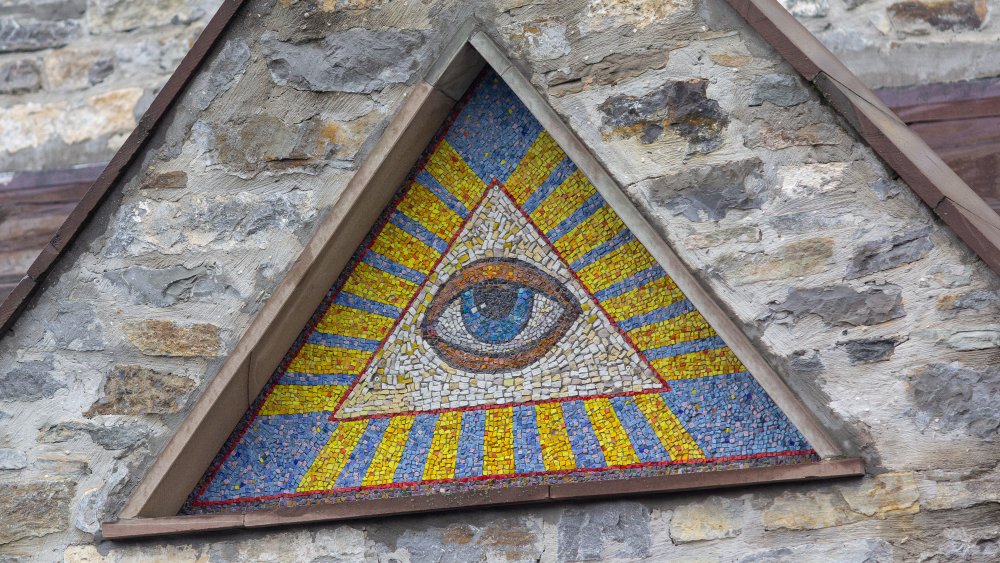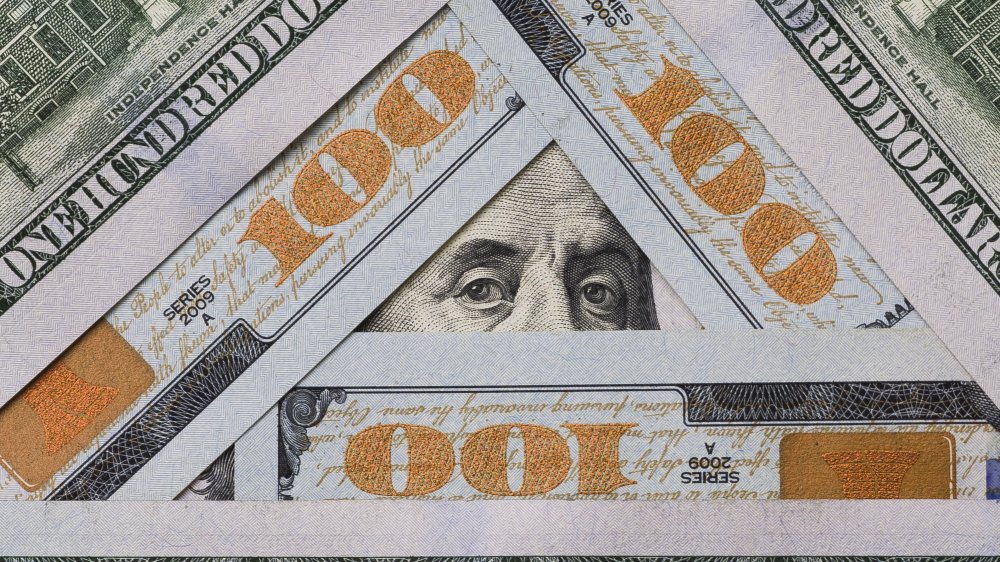The Illuminati Origin You Never Heard About
The Illuminati: of Earth's various groups of clandestine Orwellian overlords, they're the ones most likely to very much be aware that you're reading about them right this minute.
Anyone with a penchant for the conspiratorial can tell you that the name "Illuminati" originated with a group of Bavarian futurists and philosophers in the 18th century. Why did they need their own secret society? According to historian Vernon Stauffer, it was partly due to that most nefarious of motives: joining the Freemasons cost too much money. If that seems like an inauspicious beginning for the group that would later rule over all of humanity from an invisible tower, there's a good reason — the Illuminati, frankly, was never about world rule. It was a think tank full of German nerds, which lasted right around a decade. From a broad point of view, the Illuminati didn't ... you know, do anything.
So how did conspiracy theorists land on the idea that this sketchy shadow government was pulling the strings of world leaders, ushering everyone down a path to globalist dominance and vitamin deficiency? It all comes down to the 1960s, Playboy, and the fact that hippies were, on occasion, a bunch of lil' stinkers. It started with Discordianism, a "religion" being touted in pamphlets, purportedly dedicated to the worship of Eris, the Greek goddess of chaos. It was more or less a goof. Basically, just a religion for internet trolls in the days before the internet. But it caught on.
Illuminati? Or illumi-nice?
True to that philosophy, one of the authors of Discordianism's holy texts, Kerry Thornley, teamed up with the like-minded Robert Anton Wilson, hoping to go low-key Nolan villain on the world and spread a little rhetorical chaos. To combat perceived authoritarianism, they would spread misinformation, creating a literal counter culture.
Wilson was working for Playboy at the time, and he and Thornley would send fake letters to the magazine, telling stories of an elite underground society that controlled the world, the Illuminati. One letter would tell a story one way, and the next would contradict it. "the concept behind this," said researcher David Bramwell in an interview with the BBC, "was that if you give enough contrary points of view on a story, in theory – idealistically – the population at large start looking at these things and think, 'hang on a minute.'"
"Of course," he continued, "it didn't happen quite in the way they were hoping." Instead of sparking a movement towards independent thought and skepticism, Wilson and Thornley created an international conspiracy, held responsible for everything from the JFK assassination to mind-controlling fluoride. And they couldn't have done it without naked lady magazines. Now that your mind is at ease, feel free to consume and obey once more in peace.

